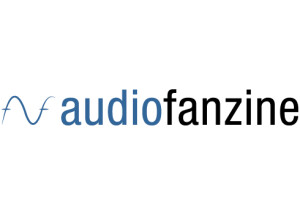December 27, 2014 editorial: comments
- 6 replies
- 4 participants
- 1,592 views
- 4 followers
Mike Levine
Forward, Into the Future
As 2014 rapidly comes to a close, I wanted to thank you all for being a part of the Audiofanzine community. We couldn’t do it without you.
Looking back over the year, we’re pleased with what we accomplished. We provided video coverage of the NAMM, Musikmesse, Summer NAMM, A3E, and AES shows; hosted numerous interesting and productive discussions on our forums; posted a ton of user reviews; published countless how-to, interview and product review stories; and provided useful gear information through our extensive online product database.
And now that the year is almost over, I hope you’re able to take some time off over the next week and do some serious chilling with family and friends. I certainly plan to.
When 2015 starts, we'll be back up to full speed, and in a few short weeks it will be NAMM time, and the Audiofanzine team will be in Anaheim, covering the annual avalanche of new products.
If you have any suggestions for stories you'd like to see on Audiofanzine in 2015, please feel free to post them on the thread for this story or in a relevant forum category. We look forward to hearing from you.
Have a safe and happy new year!
Mike Levine
U.S. Editor, Audiofanzine
Netten
canadayjack
Maybe I'm just whining but I invested a lot of money in a red ball only to find out I needed a blue bucket instead. Metaphor.
Mike Levine
Thank and a Happy New Year from a Audiofanzine-fan in Spain.
Hi Netten - Thanks! It's great to hear from a fan in Spain!
Mike Levine
Why is Pro Tools the industry "standard"?
That’s an interesting question. There’s no doubt it’s considered the industry standard in most of the pro audio world. That is, major studios, major labels, record industry (EDM notwithstanding) and for motion picture sound and soundtracks. Back before computers were as fast as they are now, Pro Tools established itself as the leader in those areas because it offered systems based around external DSP hardware (called TDM and later HD systems), which allowed audio recording and processing with the low latency and high track counts needed for major projects. Because Digidesign (which was the previous name of Avid) was able to provide those systems — and Pro Tools was the software component, it became the standard, although it was possible to run other DAWs, like Logic, on Pro Tools hardware.
But for home studio users at the time, TDM systems were super expensive, and Pro Tools was initially didn’t have MIDI support, and when it did add it, it was not nearly as good as what was in programs like Logic and Digital Performer, Cubase, and Sonar. Those DAWs — although they didn't have the DSP power of a TDM system — offered digital audio (although not as powerfully implemented) and superior MIDI editing and recording.
Now that computing power has increased significantly, native-based DAWs can compete much better with Pro Tools (which now has native as well as hardware-based systems), and many other DAWs are now on the market and competitive.
In the EDM world, Pro Tools is not “industry standard,” as far as I can tell. Ableton Live and Logic seem to be more dominant in that area.
These days, there is much more parity in terms of capabilities between DAWs. Some are stronger in certain areas, but among DAWs that run natively (without additional hardware), it’s a matter of which one’s workflow you like best.
canadayjack
Is there any way to kind of bridge the gap between systems. By that I mean, if I am working with Pro Tools and want to transfer all of the EQ settings and insert choices to Cubase. Or is there a way to take a snap shot of what you were doing in one and duplicate it on another. The problem I'm sure most folks run into when collaborating is the differences in DAW's and the proprietary methods each one incorporates. Wave files seem to me to be a way around most issues but having spent hours upon hours setting EQ's, gates, compressors, filters and the like one can lose a tweak here and and a accidental eureka there.
I know that you will have to have the exact same plugins and such to do an exact match. I have used AAMS and although very much so it is cheating, it does provide a word doc of exactly what it did to the file. All EQ, comp, filter etc. settings are listed by freq. This has aided me in learning what affects what and dialing it in manually has driven the point home.
angelie
Perhaps people should think about that.
File -> convert or save session as { your daw here }
- Angelie
It's not about what you got to use .... but how you use what you got...
[ Post last edited on 01/03/2015 at 13:59:05 ]
- < Thread list
- Rules

